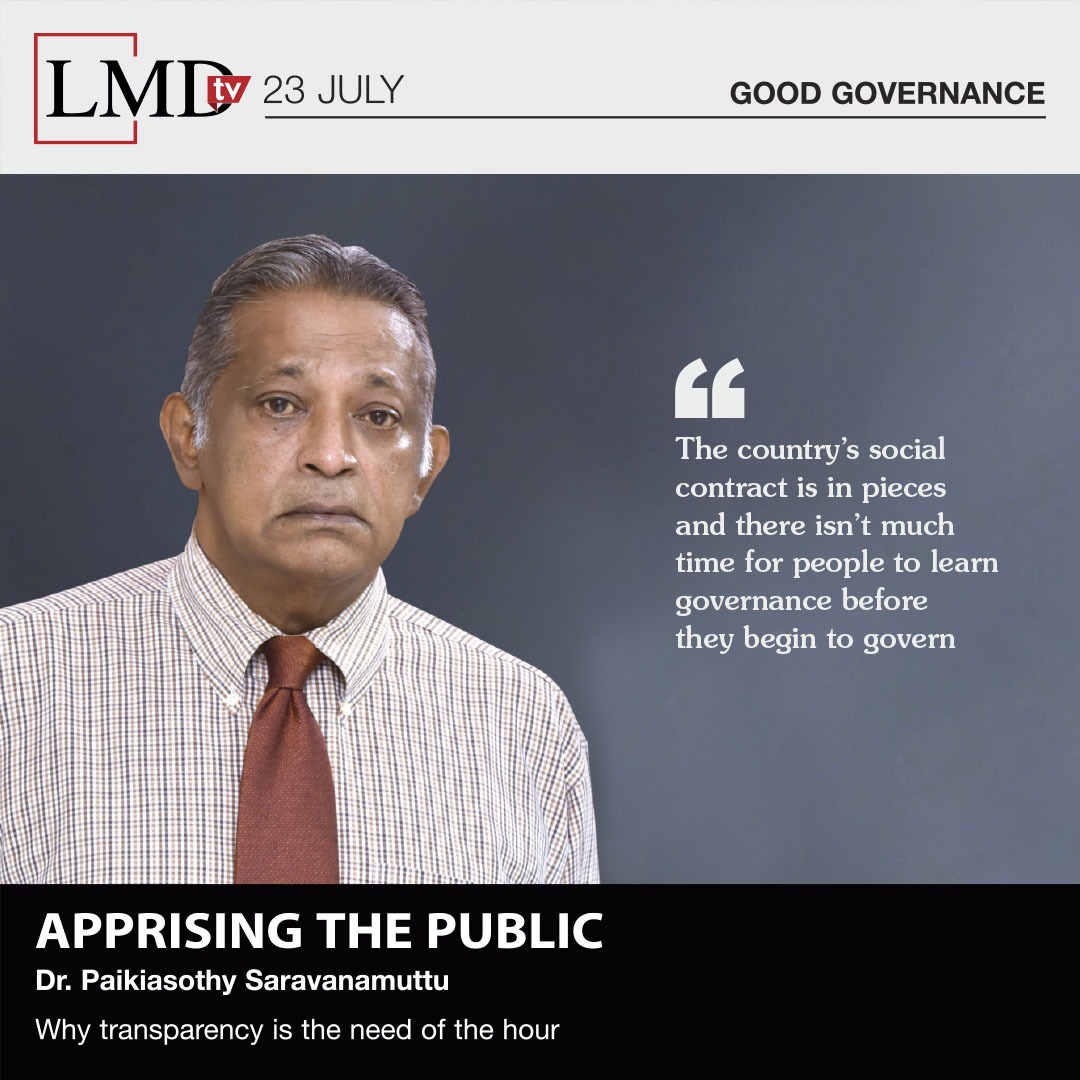LMDtv 3

Since being elected last year, the government has taken steps to curb bribery and corruption. Executive Director of Centre for Policy Alternatives Dr. Paikiasothy Saravanamuttu attributes this strong stance and resulting initiatives of the government to understanding the need for accountability.
“The aragalaya showed the desperation felt by the public with regard to accountability, and the National People’s Power (NPP) party captured its essence and brought in a government that places responsibility on accountability,” he said, on an LMDtv interview not long ago.
He noted that although “the population in general is quite happy” regarding the recent arrests of officials and politicians on the grounds of corruption, it is still a far cry from carrying out convictions.
Saravanamuttu explained: “The government needs to take the people along in terms of communication, and keep them informed that such things take time; but it is working on the issue of corruption and will definitely ensure that decisions are reached,” he opined.
But he added that there is also the possibility that people will develop a perception that the arrests are a “distraction from not doing anything on the policy side.”
By and large, the government has so far not been associated with corruption, and Sri Lanka is witnessing dedication and commitment by the president and government officials towards eradicating it.
“However, though there aren’t any allegations of corruption levelled against the government as of now, it’s early days yet as the cynics would say,” he noted.
Sri Lanka also needs demonstrable action on the policy front. He pointed out that this government hasn’t run the country before and therefore, may not have the necessary experience – so the clock is ticking: “The country’s social contract is in pieces and there isn’t much time for people to learn governance before they begin to govern.”
He pointed out that “in 2027, we will complete the IMF programme and will need to have approximately US$ 13 billion to start repaying our creditors.”
“We now have approximately five or six billion dollars from remittances and tourism. But given the situation in the Middle East, this inflow of earnings could be at risk. While I hope nothing untoward happens, the government needs to reach out to those who know or have experience in governance. And they need to communicate their plans to the Sri Lankan people.”
Saravanamuttu continued: “We keep hearing about development initiatives, the digitisation agenda and education reforms, but everything seems to be delegated to committees and consultations. And we don’t know who the government is consulting – and who is on those committees.”
“It’s odd because when the NPP sat in opposition, it was extremely critical about the lack of transparency and accountability of various governments. But after gaining power, it seems to be the most opaque leadership that we’ve seen in terms of decision making,” he lamented.
Saravanamuttu also discussed the need to streamline the public sector. He said: “A bureaucracy of 1.4 million people for a population of 23 million is absurd and unsustainable. While this cadre must be reduced, the government can’t simply toss the bureaucrats out. They will need to be retrained and provided with other opportunities.”
He added: “The government must identify where expertise is needed and provide it – whether it’s in the area of vocational training, IT, education etc. The skills and capacity of state officials will need to be enhanced so they can either return to the public service and perform their jobs efficiently or transition to the private sector.”
In summing up, he urged: “The government also needs to explain what it is doing and why it isn’t doing what it promised to do. It must remember that it’s responsible for governing the entire the country – simply claiming that it’s busy working on the IMF programme isn’t good enough.”

